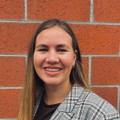Special Needs Advocacy Bogdan Radich Memorial Scholarship
Special Needs Advocacy is a 501(c)(3) that provides fiduciary services to the special needs community.
Those with special needs often aren’t welcomed and embraced by society. Underfunded schools struggle to provide adequate resources to students with special needs, public spaces lack appropriate accommodations, and society in general fails to provide adequate services to make the world accessible to all.
This scholarship seeks to honor the memory of Bogdan Radich by supporting students who are dedicating their lives to helping those with special needs.
Any undergraduate or graduate student who is pursuing a career helping those with special needs (special education, occupational or physical therapy, social work, etc.) may apply for this scholarship opportunity.
To apply, tell us about yourself and how you plan to make a difference through your career in helping those with special needs.
Please tell us about yourself and how you plan to make a positive social impact in your career serving those with special needs?
Winners and Finalists
July 2025












Winning Application

Explore All Kinds of Scholarships for All Kinds of Students
FAQ
The application deadline is Jun 21, 2025. Winners will be announced on Jul 21, 2025.
Your privacy is a top priority on the Bold.org platform, and you can find our privacy policy in full here. You may opt out of communications from Bold.org at any time, and unless we’ve first notified you and gotten your consent, you’ll never receive communication from any third parties related to personal information you give us.
Award amounts per winner are designated by the donor. Check the award amount for a detailed breakdown.
The winner will be publicly announced on Jul 21, 2025. Prior to the announcement date, we may contact finalists with additional questions about their application. We will work with donors to review all applications according to the scholarship criteria. Winners will be chosen based on the merit of their application.
Award checks will be sent to the financial aid office of the winner's academic institution in their name to be applied to their tuition, and in the name of their institution (depending on the school's requirements). If the award is for a qualified educational non-tuition expense, we will work with the winner directly to distribute the award and make sure it goes towards qualified expenses.
Before we award the scholarship, the winner will be required to confirm their academic enrollment status. Depending on the circumstances, verification of Student ID and/or their most recent transcript will be required.
If you have any questions about this scholarship or the Bold.org platform, just email contact@bold.org and we’ll get back to you as quickly as we can.
Yes. The terms and conditions for this scholarship can be found here.